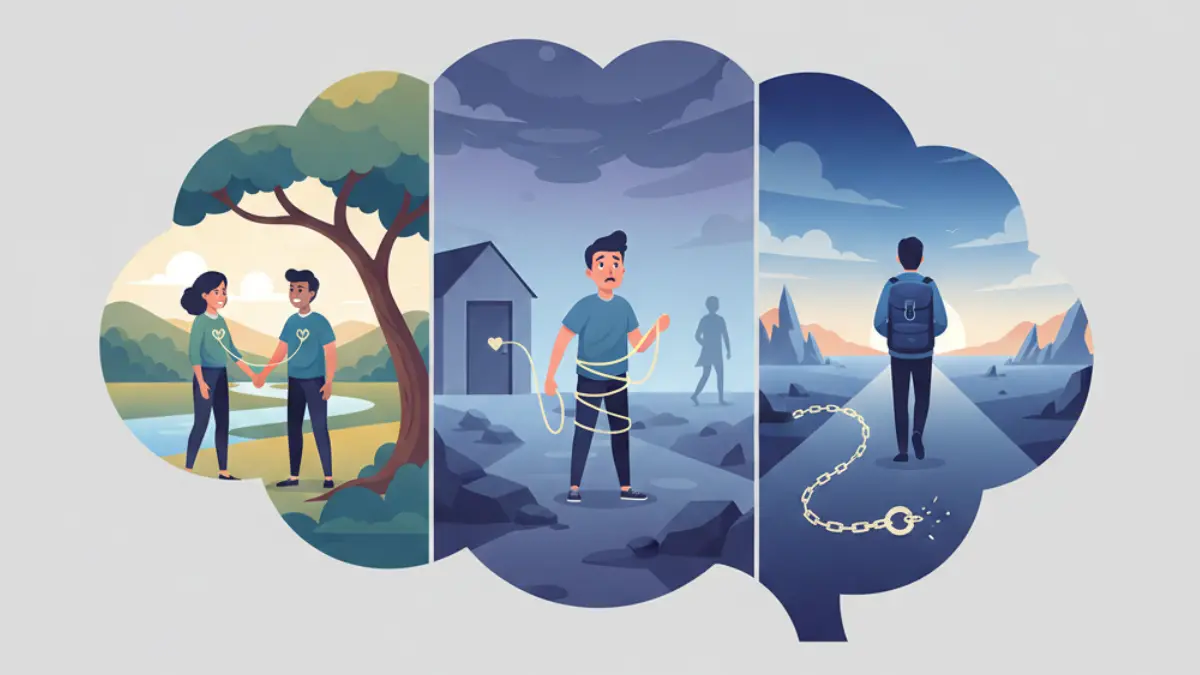Measure your anxious attachment style and discover how your fear of abandonment affects your romantic relationships.

Anxious Attachment Scale
Are you overly preoccupied with your partner's love? Take this test to find out.
Romantic attachment describes the emotional bond you form with your significant other. This bond is rooted in your earliest experiences with caregivers, which shape your patterns for seeking closeness, comfort, and security in adult relationships. An Anxious Attachment Style develops when a person's caregivers were inconsistent or unpredictable, creating a foundation of insecurity that translates into romantic partnerships. It is one of the primary attachment patterns studied in relationship psychology, alongside secure and avoidant styles.
For those with an anxious attachment style, relationships are often colored by a pervasive fear of abandonment and a chronic, high-level need for reassurance from their partner. This can manifest as dependency, heightened emotional reactivity to perceived slights or rejection, and difficulty maintaining trust in their partner's long-term commitment. This preoccupation often leads to behaviors that partners may perceive as clingy or overly demanding, which can place a strain on the relationship. If you're interested in other factors that impact your love life, you can also explore our Fear of Being Single Scale or the Relationship Satisfaction Scale.
Frequently Asked Questions
- How long does this quiz take?
- It takes about 2-3 minutes to complete.
- Are my responses private?
- Yes, all Anxious Attachment Scale answers are anonymized and confidential.
- Can I take this test more than once?
- Yes, you can retake the test any time to see how your Anxious Attachment Scale results may have changed.
- Will this quiz help me understand my relationship patterns?
- Yes, this test is designed to measure the degree of anxiety you experience in your romantic relationships and identify patterns of seeking closeness and security.
- Can my results help me improve my relationships?
- Your results can highlight areas where you exhibit anxious attachment traits, which is a good first step toward developing a more secure and satisfying relationship style.
Anxious Attachment Scale: Take The Test
References
Disclaimer
This scale is designed for educational purposes and is not a substitute for professional diagnosis or treatment.

